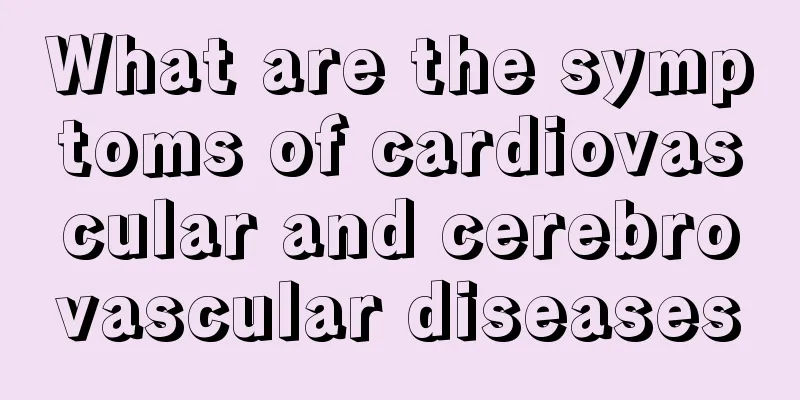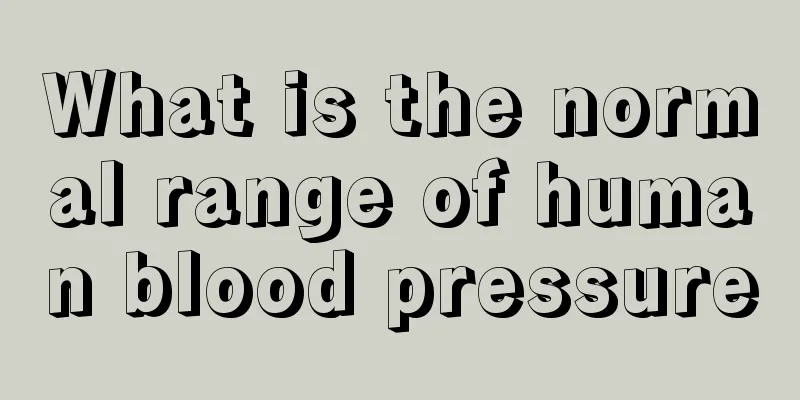What are the symptoms of cardiovascular and cerebrovascular diseases

|
Cardiovascular and cerebrovascular diseases are a general term for cardiovascular and cerebrovascular diseases, which are more common among the elderly. The symptoms of cardiovascular and cerebrovascular diseases are also determined by different types of diseases, including symptoms of cerebral thrombosis and cerebral arteriosclerosis. 1. Cerebral thrombosis: Acute onset is the main feature, and it is one of the most rapidly developing diseases. Most patients do not have any prodromal symptoms before the onset of the disease, and the disease develops suddenly during activities. The vast majority of symptoms develop to a peak within seconds or minutes. A small number of patients show step-by-step or progressive deterioration within a few days. About half of the patients have impaired consciousness at onset, but it lasts for a short time. 2. Cerebral arteriosclerosis: Symptoms such as dizziness, headache, irritability, inattention, memory loss, limb numbness, and bleeding often occur. 3. Transient ischemic attack: Sudden transient blackout, loss of vision, white flashes, visual field loss, or diplopia in one eye may occur suddenly and last for a few minutes before recovery. Mild hemiparesis or hemisensory abnormalities in the contralateral limbs. Damage to the dominant hemisphere may cause transient aphasia, apraxia, alexia, or agraphia, or simultaneous weakness of the facial and tongue muscles. Transient difficulty swallowing, choking when drinking water, slurred speech or hoarseness. 4. Heart disease Common symptoms include: palpitations, dyspnea, cyanosis, cough, hemoptysis, chest pain, edema, oliguria, etc. V. Others Local pain, numbness or muscle weakness in the lower limbs may occur after activity. The symptoms will be relieved after the limbs stop moving. The symptoms will reappear after repeated exercise of the same intensity and will be relieved after rest. This often indicates that the lumen of the lower limb arteries is narrowed due to the formation of atherosclerotic plaques. At this time, it often indicates that the blood vessels of important organs such as the heart and brain have the same changes, and timely medical treatment is required. Sudden loss of consciousness, falling to the ground, with or without convulsions of the limbs, waking up on their own after a few minutes to tens of minutes, and no special discomfort afterwards, is medically known as syncope. Many cardiovascular diseases can cause syncope, such as bradycardia, various tachycardias, aortic valve stenosis, hypertrophic cardiomyopathy, pulmonary embolism, primary pulmonary hypertension, severe myocardial infarction, etc. At this time, you must seek medical attention in time, otherwise there is a risk of sudden death. |
<<: What are the effective ways to prevent cardiovascular and cerebrovascular diseases?
>>: What to do if you are afraid of the dark? 6 tips to help you relieve
Recommend
What foods are best for detoxification and beauty?
Nowadays, many people pay special attention to de...
Why does stinging and redness occur when using skin care products?
Skin care products are commonly used beauty and s...
What are the symptoms of shoulder bone cancer
Symptoms of shoulder bone cancer include local pa...
Is it good to eat after running?
Running is a sport that most of our friends usual...
What should I do if my right chin is tilted to the right
The phenomenon of half of the face being big and ...
Vitamin C content of green pepper
Everyone knows that vitamin C can help people enh...
What time is the best to go to bed at night?
Everyone has different sleeping times, but what i...
The role of food powder
Food powder, which is the baking soda we usually ...
How to clinically determine if you have esophageal cancer
The causes and treatments of esophageal cancer ar...
Is it good to drink milk before going to bed every day?
Milk is the most consumed beverage in our lives. ...
Prevention and treatment of cerebral infarction
Cerebral infarction is a relatively serious brain...
How to relieve the symptoms of lung cancer? These recipes can effectively treat lung cancer symptoms
If they can overcome the difficulties of lung can...
What are the benefits of foot soaking
Foot soaking is a very good way to keep healthy, ...
What are the dangers of fat-dissolving slimming capsules?
In order to have a better figure, many people are...
When you open your mouth and find it, be careful as it may be a sign of cancer
Many people believe that the unpleasant odor peop...









